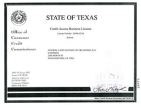If you're ready to streamline your space, it may be time to get rid of your old stuff! While you could head to the thrift stores or set up a garage sale, modern times call for modern methods. Now, you can access a new world of buyers with just the click of a button. We'll walk you through some of the most popular apps for selling items, so you can find a happy home for that old jacket or coffee table. Each app is easy to use, even if you're less than tech-savvy. And if you're looking for a little spare cash in the meantime, contact CashMax about our personal loan services! From payday loans to cash advances, we're happy to help you through any financial woes.
Fashion
When it comes to clothing sales, Poshmark is one of the most popular around. This app has built up quite a following for its amazing selection of clothing and accessories for women, though demand for men's fashion is growing rapidly. This is the perfect place to sell that handbag collection that is gathering dust in the closet! Just take a photo with your phone, add a description, and upload the listing. You'll get an alert when a sale is made, and the company will even mail you a pre-paid shipping label.
Electronics
If you've upgraded your laptop or camera, you may consider selling your old electronics to Gone. Similar to Poshmark, you can provide a picture and description of your item to the app in minutes. However, there's no need to deal with sellers when you use Gone. The company makes an offer directly to you, and they will auction off the item themselves. This can be a terrific way to unload your old electronics while making a profit!
